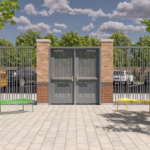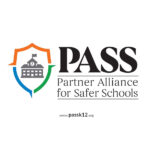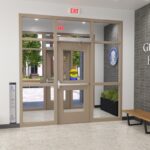 Following up on yesterday’s post which addressed new- and existing-building requirements of NFPA 101, I still sense some confusion about which codes to reference when. How do you know when to check the International Building Code (IBC), or if you should be looking at the International Fire Code (IFC), NFPA 101 – Life Safety Code, or a different code altogether? And what about all of those referenced standards?
Following up on yesterday’s post which addressed new- and existing-building requirements of NFPA 101, I still sense some confusion about which codes to reference when. How do you know when to check the International Building Code (IBC), or if you should be looking at the International Fire Code (IFC), NFPA 101 – Life Safety Code, or a different code altogether? And what about all of those referenced standards?
Maybe I’m getting more nostalgic lately, but (just like yesterday’s question) I remember my own confusion about this. Years ago, I attended a DHI class that focused on NFPA 101 – The Life Safety Code, and the following week I was on the phone with my friend and NYC code legend, Zeke Wolfskehl. He patiently explained to me that most jurisdictions adopt a building code and a fire code, and that the NFPA 101 requirements may or may not apply in a given location. It’s because of Zeke and the rest of my mentors (you know who you are!) that I’m here to help interpret the codes today.
So, how do you know which code to reference?
- If it’s a building that’s in the design or construction phase, or undergoing a renovation, you would typically reference the building code that was in effect when the building permit was issued. If it’s an existing building, you would reference the adopted fire code.
- Most states adopt a building code and a fire code, often with state modifications. If a state does not adopt a building code or fire code, the large cities within that state may adopt these codes. In some cases, cities will adopt their own codes even if the state has adopted a code.
- Many states also adopt accessibility standards, which could be part of the state building code, or might be a separate publication.
- Some AHJs will enforce a code that is different from the code that has been adopted by the state. Often those buildings will have to comply with the most stringent requirements of each applicable code.
Let’s use Massachusetts as an example:
- Massachusetts adopted the 9th edition of the Massachusetts State Building Code on October 20, 2017, with a concurrency period that extended until the last day of 2017. Building permits issued during the concurrency period could either be permitted under the 8th or 9th edition of the code. The 9th edition is based on the 2015 editions of the i-Codes (including the International Building Code), with Massachusetts amendments. All of this information is on this page, which I found by googling Massachusetts State Building Code.
- For new and existing buildings in Massachusetts, the fire marshal will enforce the adopted fire code. By searching for Massachusetts State Fire Code, I found this page, which states that as of January 1, 2018, Massachusetts has adopted the 2015 edition of NFPA 1 – Fire Code, with some Massachusetts amendments. NFPA 1 references NFPA 101 – Life Safety Code for means of egress requirements.
- When I searched for Massachusetts Accessibility Standards I found this page, which includes information about the Massachusetts Architectural Access Board, as well as links to the current and past editions of the Massachusetts AAB standards.
- There are other codes and standards used in Massachusetts, including the electrical code, the energy code, and all of the standards referenced by the codes listed above. Finding the applicable information can take some digging, but you can always ask me (or the AHJ) if you run into trouble. Another good resource for state code information is UpCodes.
- Keep in mind that an AHJ may enforce a different code than those adopted by a state or jurisdiction. For example, when Massachusetts health care facilities are surveyed by the Joint Commission (or another accrediting organization) on behalf of CMS, the 2012 edition of NFPA 101 is currently enforced, even though the state building code and state fire code are based on other codes/editions. It’s important to be aware of the requirements of each of these codes and standards, in order to comply with the most stringent applicable requirements.
.
If you have trouble identifying the adopted code for your project’s jurisdiction, give me a shout.
You need to login or register to bookmark/favorite this content.





If it’s new construction or a renovation, I would check the website of the building department of the jurisdiction the building is in. They may have more stringent requirements than the state. Sometimes you may have to even look at what’s listed on the building permit application. And, when in doubt, just call them!
FYI. Be glad you’re not working in Mississippi. The State of Mississippi only recently passed legislation which requires counties, cities, etc. to adopt any form of code. Prior to that, it was like the Wild-Wild-West where everyone had their own code adopted (or none), some going back to the old Southern Building Code. At least now, everyone is required to adopt one of the last three versions of IBC (currently 2018, 2015, or 2012). But it’s still confusing, as a city may have a different code adopted than the county in which it resides. A county school district may adopt a different code than the city in which it has a facility. A building may be under the jurisdiction of the MS Bureau of Buildings which over-rides the code adopted by the city/county in which it is built. Not to mention each jurisdiction may adopt or amend the codes to meet their individual needs. And don’t get me started on hospitals, which may need to meet IBC for the city they are in, but also NFPA for CMS or JC.
Oh boy – that sounds like a challenge! But maybe it’s slow progress toward a state-wide code?
– Lori
I have been a locksmith for over 50 years and have always been told the when you have glass in a door or within 40 inches of the door that it required a double cylinder deadbolt along with the entry lock. Is this stated in the uniform building codes that most states adopt?
I know that insurance companies want you to control the degress and egress of potential burglar, by limiting the way out of a building or home.
Herbert
Hi Herbert –
I have not seen that stated in a code, but it’s possible that it could be a state or local requirement. This post shows what is in the International Residential Code: https://idighardware.com/2010/11/double-cylinder-deadlocks-residential/. Most states adopt some form of this code for 1- and 2-family homes. There are very few locations in the International Building Code (used for most other types of buildings) where a double cylinder deadbolt is allowed. This post covers those locations: https://idighardware.com/2014/04/decoded-key-operated-locks-june-2014/. And this post includes some updated information about the code requirements for deadbolts: https://idighardware.com/2018/08/decoded-deadbolts-in-a-means-of-egress-october-2018/.
– Lori